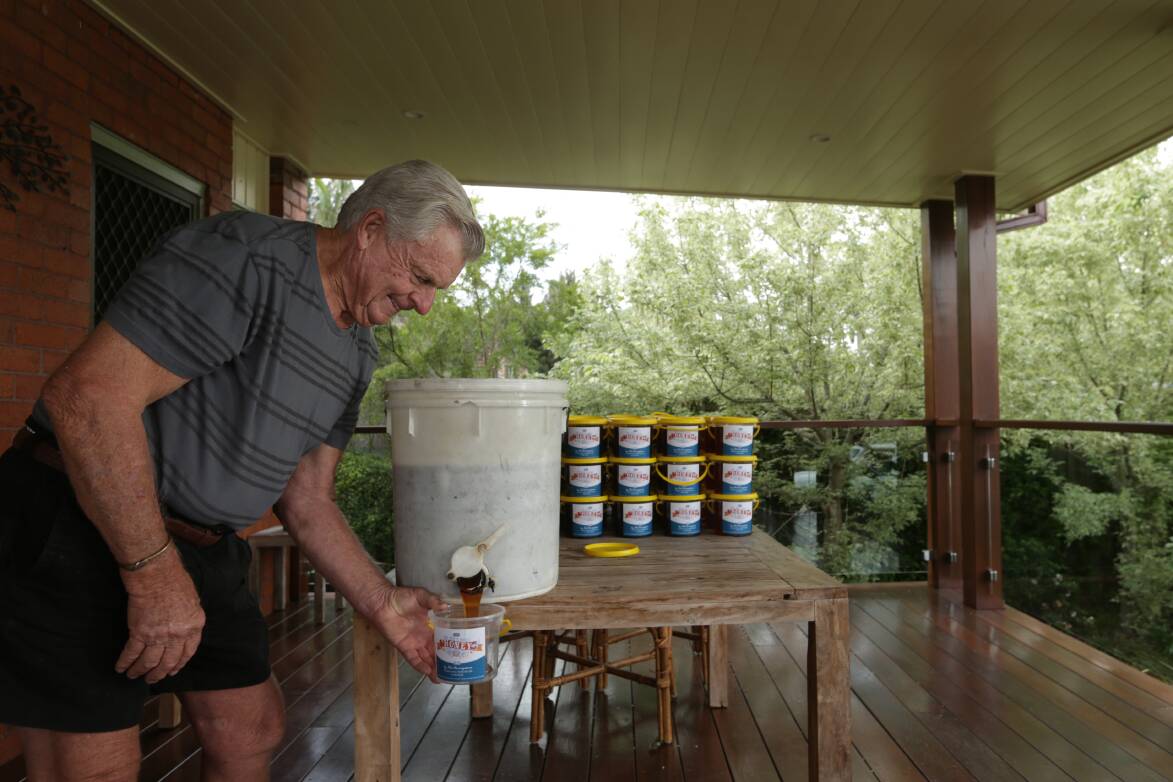
Mayfield West beekeeper Neil Livingstone is looking forward to producing honey again.
"We'll get back into it and make some really good honey for Newcastle. I have no doubts about that," Mr Livingstone said.
"My wife and I checked out eight European countries at the beginning of this year. I tried the honey in each of those countries and it's beautiful. They all have varroa mite."
People in the Hunter can keep bees and produce honey again, following the NSW government's decision last week to end its bid to eradicate the deadly parasite.
After spending $101 million on the unsuccessful eradication program, the government has moved to a management phase.
The Hunter is now considered a "yellow management zone". People can keep bees inside the zone, but can't move them outside the zone without a permit.
They must test hives for the mite every 16 weeks and report the results to the NSW Department of Primary Industries. The department will provide beekeepers with "miticide strips" to kill any mites found.
Mr Livingstone hoped to have his new hives in operation soon.
"I've got 30 new boxes for hives I built while I've been doing nothing for 15 months," he said.
He ordered a dozen new hives from Tamworth [which is outside the yellow zone] to replace the ones that were destroyed in the eradication program, but is facing some red tape.
"I've got to apply for and wait for the government to give me permission to transport the hives into the yellow zone."
The varroa mite was first detected in the sentinel hives of European honey bees near the Port of Newcastle 15 months ago. Mr Livingstone called out DPI at the time for failing to adequately check "sentinel hives" around the Port.
He had urged the government for months to stop the widespread killing of bees and learn to live with the mite.
"I'm very pleased they woke up to themselves and went down that path. There was no other path to go down. You can't eradicate varroa. No other country in the world has eradicated it," he said.
Peter King, who owns Pender Beekeeping Supplies at Cardiff, said his business was down about 40 per cent in sales since the mite was detected.
"Things will hopefully bounce back slowly. I know a few other beekeeping suppliers in Taree and Sydney who were giving it another three months before closing the doors," Mr King said.
While beekeepers received compensation for the destruction of their hives, suppliers received nothing.
"We weren't in the equation they told us," Mr King said.
The NSW government said last week it would work with "all the national players and reallocate resources to slowing the spread of the pest and providing management options".
.jpg?w=600)






